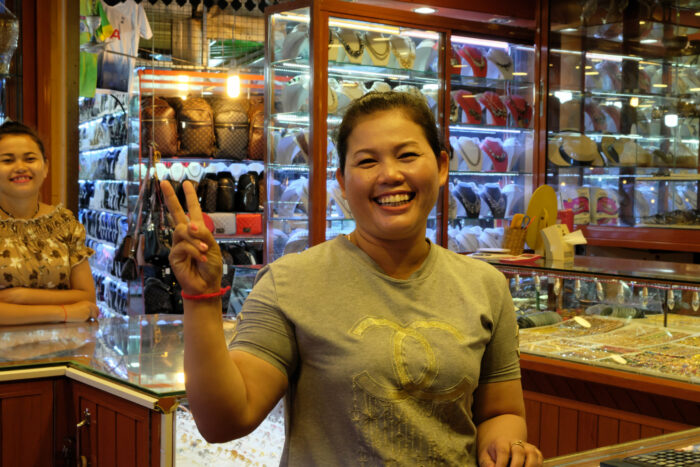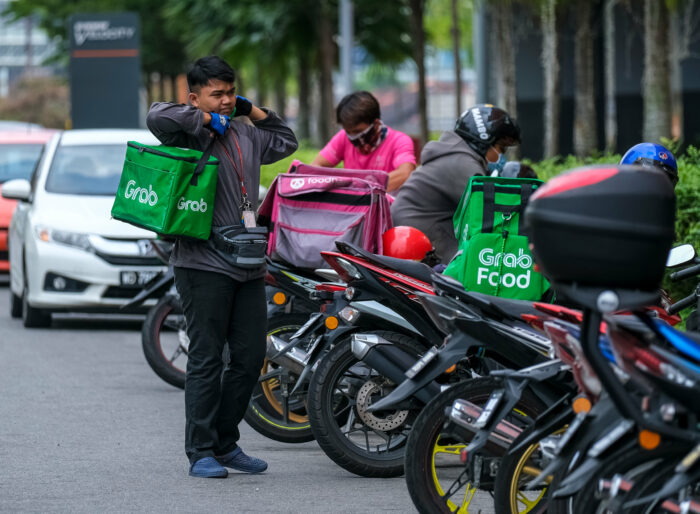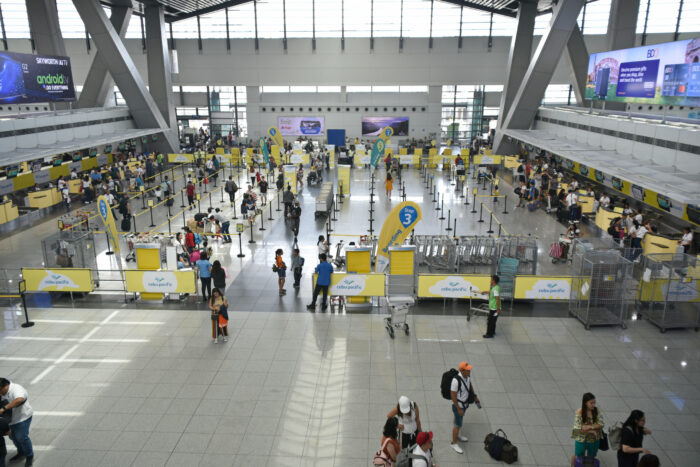Employment of disabled workers increases in China

Some 8.62 million people with disabilities, including the self-employed and flexible workers, were employed in 2020, up from 8.55 million in 2019.
60% of women in Cambodia are business owners

Minister of Labour and Vocational Training Ith Samheng has said that more than 60% of women in the kingdom are business owners or entrepreneurs.
Japan group set up to protect gig workers’ rights

Currently, gig workers are considered self-employed and therefore not guaranteed a minimum wage or employment insurance.
Gender pay gap in Australia falls to 13.8%

The full-time wage gap between male and female workers amounted to A$255 per week, marking the second lowest national pay gap in the last 20 years.
Malaysia partners with on-demand work platform to protect gig workers

Gig workers on the platform with existing EPF accounts can give their consent to opt into the programme and set their contribution rate.
Taiwan’s gender pay gap rises to 15.8% in 2021

The pay gap between the hourly wage of male workers and that of female ones averaged NT$57 or 15.8% last year, according to the Ministry of Labour.
Singapore provides reskilling opportunities for older workers

Most of the people who have difficulty obtaining jobs are typically in their 50s and 60s and have educational qualifications below a diploma.
Indonesia’s Old Age Insurance Programme reverts to original role

With the launch of the Job Loss Guarantee Programme (JKP), the Old Age Insurance Programme (JHT) will revert to protecting elderly workers.
Men in Australia twice as likely to be paid more than women

Some 22% of company boards also do not have a single woman on them, while less than one in five CEOs are female, a report has found.
Australia’s companies narrow gender super gap

About 49% of employers in the database of Workplace Gender Equality Agency (WGEA) pay super on their parental leave scheme.
The Philippine government urged to help repatriated migrant workers

The Asian Development Bank (ADB) has said the unprecedented return of overseas Filipino workers (OFWs) is creating growing challenges.
Most South Korean mothers want to remain in workforce

Out of the female workers who worked until giving birth, 77.5% either went back to work or plan to return to work after childbirth.
The three biggest questions HR leaders will face in 2022

Achievers’ Matt Seadon shares the biggest questions that HR leaders will have to tackle in 2022 as they shape and redefine the post-pandemic workplace
Employees in Malaysia promised fair maternity leave and allowance

Following complaints of ambiguity, the Women’s Aid Organisation said it sought clarification from Malaysia’s human resource ministry.
Indonesia’s female labour force participation remains low

The patriarchal culture in the country has caused the labour force participation (TPAK) of female workers to lag behind that of male ones.
Indonesia’s manpower minister urges for gender equality at work

Women should be given equal employment opportunities in Indonesia, said Manpower Minister Ida Fauziyah.
South Korea aims to attract more skilled workers

A fast-track visa system for foreigners with a master or PhD degree in science and IT will guarantee legal status during their job search period.
More support urged for Singapore’s gig workers

It was also proposed that platform companies should provide a baseline level of coverage for work injuries sustained by these workers.
Indonesia to boost empowerment of women

President Joko Widodo (Jokowi) has outlined three main conditions that must be met to bolster the empowerment of Indonesian women.
China moves to reduce workplace gender discrimination

Under new regulations, employers cannot ask female job applicants if they intend to get married or pregnant, or to make them take pregnancy tests.
Driving better business outcomes and employee engagement with DEI

Sophie Guerin, Head of Diversity, Equity, & Inclusion, APAC, Johnson & Johnson, highlights how organisations can embrace and integrate DEI.
The whole new world of work: Emerging trends in 2022

Jeanne Achille, Founder and CEO of The Devon Group, describes emerging trends that HR needs to consider for 2022.
3 priorities to consider when managing EX in a new world of work

As hybrid work becomes increasingly prevalent, Qualtrics highlights how organisations can better manage EX programmes.
Nine businesses in Singapore double paid paternity leave from 2022

Fathers who work in these firms will be able to enjoy four weeks of paternity leave, an increase from two weeks under current regulations.
Fostering DE&I and a culture of belonging with recognition

With more organisations having to manage hybrid workforces, Achievers explains why recognition can be a key tool for HR leaders.
Malaysia proposes flexible and shorter work weeks for women

Although flexible working schedules have been implemented since the pandemic outbreak last year, there are no laws governing the matter.
Redefining the role of the CHRO in a changing world of work

The CHRO Online Series continues December 2 with CHRO Singapore highlighting how CHROs can help develop human-centric leadership in 2022.
Indonesia looks to bridge existing gender pay gap

The Manpower Ministry is optimistic of closing the wage gap between male and female workers, and to increase the level of female participation at work.
People-centric HR management important for the “now of work”

CHRO Malaysia highlighted some of the key challenges facing CHROs today, including placing their people at the heart of all business strategies.
Pay gap widens between regular and non-regular workers in South Korea

The proportion of non-regular workers in the country has also been increasing, rising by 5.5 percentage points from 2017 to 2021.
